Related Research Articles
Johann Friedrich Agricola was a German composer, organist, singer, pedagogue, and writer on music. He sometimes wrote under the pseudonym Flavio Anicio Olibrio.

Johann Ludwig Bach was a German composer and violinist.

Johann Sebastian Bach composed the church cantata (Bach) Wo soll ich fliehen hin, BWV 5, in Leipzig for the 19th Sunday after Trinity and first performed it on 15 October 1724. It is based on the penitential hymn "Wo soll ich fliehen hin" by Johann Heermann.

Sechs Chorale von verschiedener Art: auf einer Orgel mit 2 Clavieren und Pedal vorzuspielen, commonly known as the Schübler Chorales, BWV 645–650, is a set of chorale preludes composed by Johann Sebastian Bach. Johann Georg Schübler, after whom the collection came to be named, published it in 1747 or before August 1748, in Zella St. Blasii. At least five preludes of the compilation are transcribed from movements in Bach's church cantatas, mostly chorale cantatas he had composed around two decades earlier.
Chorale fantasia is a type of large composition based on a chorale melody, both works for organ, and vocal settings, for example the opening movements of Bach's chorale cantatas, with the chorale melody as a cantus firmus.
The St Mark Passion, BWV 247, is a lost Passion setting by Johann Sebastian Bach, first performed in Leipzig on Good Friday, 23 March 1731. Though Bach's music is lost, the libretto by Picander is still extant, and from this, the work can to some degree be reconstructed.

"Wo soll ich fliehen hin" is a hymn in seven stanzas by the German Baroque poet, Lutheran minister and hymn-writer Johann Heermann. It was first published in 1630 during the Thirty Years' War. It is a penitential hymn for Lent.

Johann Sebastian Bach composed the church cantata Wer nur den lieben Gott läßt walten, BWV 93, in Leipzig for the fifth Sunday after Trinity and first performed it on 9 July 1724. It is part of his chorale cantata cycle, the second cantata cycle he started after being appointed Thomaskantor in 1723.
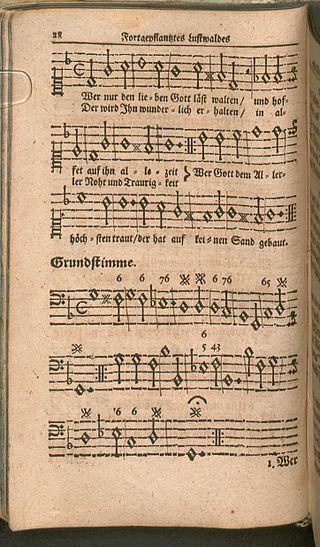
"Wer nur den lieben Gott läßt walten" is a 1641 hymn by Georg Neumark, who also composed the melody for it. It has seven verses and deals with the Christian putting their trust in God. Its author referred to it as a "Trostlied" or song of consolation and it first appeared in his Fortgepflantzer musikalisch-poetischer Lustwald. It also appeared in Johann Crüger's 1672 Praxis pietatis melica and in the first part of Johann Anastasius Freylinghausen's 1704 Geistreiches Gesangbuch. It has inspired musical settings, and is part of current German hymnals, both Protestant and Catholic.
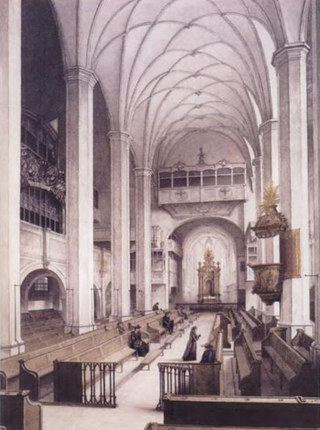
Erforsche mich, Gott, und erfahre mein Herz, BWV 136 is a church cantata by Johann Sebastian Bach. Bach composed the cantata in 1723 in Leipzig to be used for the eighth Sunday after Trinity. He led the first performance on 18 July 1723.
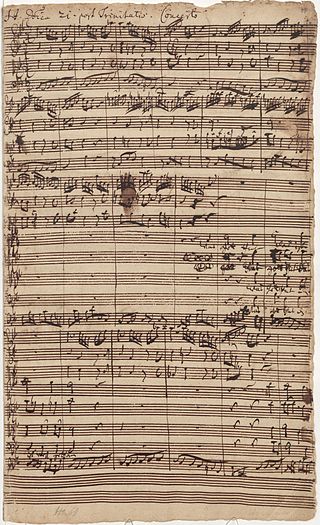
Johann Sebastian Bach composed the church cantata Was Gott tut, das ist wohlgetan, BWV 98, in Leipzig for the 21st Sunday after Trinity and first performed it on 10 November 1726.
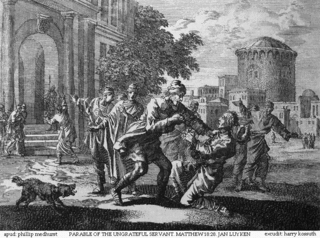
Johann Sebastian Bach composed the church cantata Was soll ich aus dir machen, Ephraim, BWV 89, in Leipzig for the 22nd Sunday after Trinity and first performed it on 24 October 1723.

Johann Sebastian Bach composed the church cantata Ach, lieben Christen, seid getrost, BWV 114, in Leipzig for the 17th Sunday after Trinity and first performed it on 1 October 1724. It is based on on a 1561 hymn of penitence by Johannes Gigas. Its tune is featured in three of the work's seven movements.
Ich habe meine Zuversicht, BWV 188, is a church cantata by Johann Sebastian Bach. He composed the cantata in Leipzig for the 21st Sunday after Trinity and probably first performed it on 17 October 1728.

Thomas Gabriel is a German church musician, composer and arranger.

Erhard Egidi was a German cantor, organist and composer of sacred music. He was Kantor at the Neustädter Kirche, Hannover, from 1972 to 1991, where he focused on music in church services, but also conducted concerts, with a preference for works of Johann Sebastian Bach and his own teacher Ernst Pepping. He was appointed Kirchenmusikdirektor, responsible for the church music of Hanover.
Georg Christoph Bach was a German composer. He was the son of Christoph Bach and the elder brother of Johann Sebastian Bach's father Johann Ambrosius Bach.
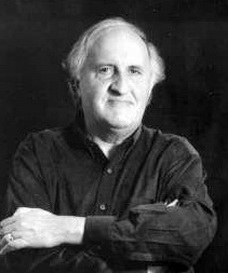
Martin Gotthard Schneider was a German theologian, church musician, Landeskantor, songwriter, and academic teacher. He is known for prize-winning songs of the genre Neues Geistliches Lied, such as "Danke" and "Ein Schiff, das sich Gemeinde nennt".
Karl Norbert Schmid was a German organist, composer, choir director and music educator.
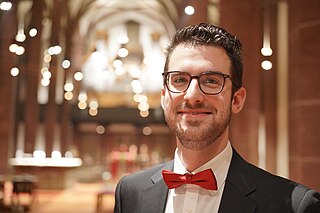
Johannes M. Schröder is a German organist, composer and Catholic church musician. After several years responsible for the church music at the Westerwälder Dom, he moved to St. Bonifatius, Wiesbaden. He is also a lecturer and a music editor.
References
- 1 2 3 4 5 "Gustav Gunsenheimer / geboren am 10.3.1934 in Kunzendorf/Niederschlesien" (in German). Fränkischer Sängerbund. 2002. Retrieved 9 March 2016.
- 1 2 3 Wiedemann, Matthias. "Komponist Gustav Gunsenheimer wird 80". Main-Post (in German). Retrieved 9 March 2016.
- ↑ "Ein "Urgestein" verlässt seine Orgel / Kirchenmusikdirektor Gustav Gunsenheimer wird am 1. Advwnt 2015 aus dem aktiven Dienst als Organist der Kirchengemeinde St. Lukas verabschiedet". St. Lukas, Schweinfurt (in German). Archived from the original on 2 March 2016. Retrieved 22 February 2016.